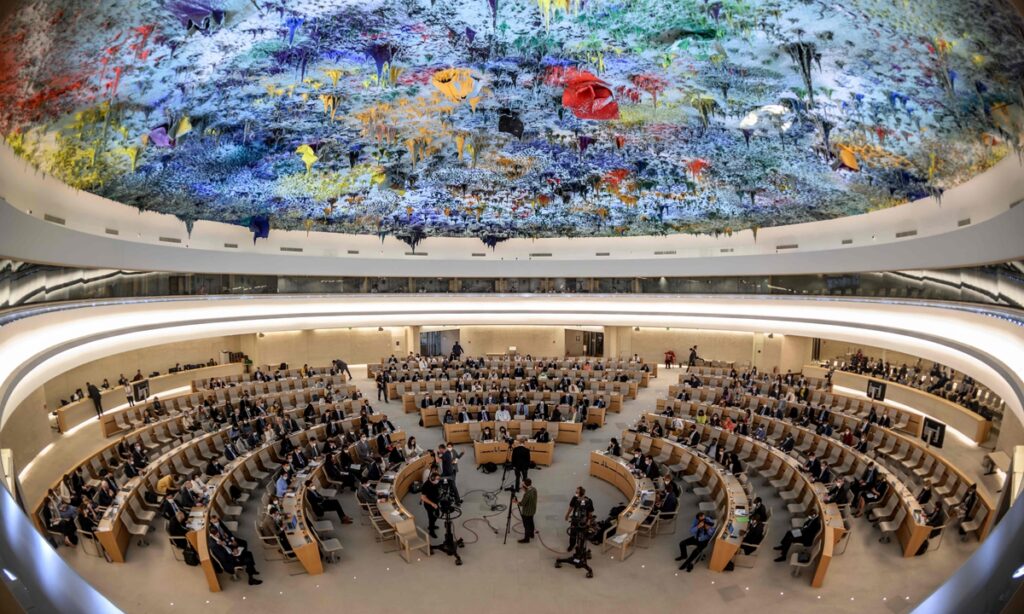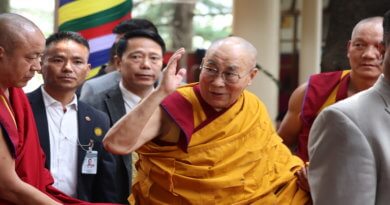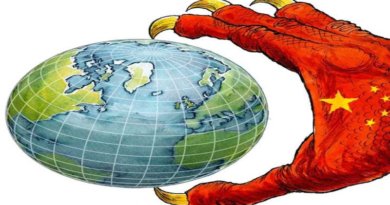TCHRD Director Calls Chinese Civil Society’s Open Letter to UNHRC Sign of China’s ‘Deep-Seated Insecurity’
By Tsering Choephel

DHARAMSALA, 29 Jan: The Tibetan Centre for Human Rights and Democracy (TCHRD) has called on the Chinese government to substantiate its accusations by addressing “the outstanding requests made by UN special procedures to investigate the actual human rights conditions on the ground.”
Ms Tenzin Dawa, TCHRD’s executive director, made the remarks after a group of 73 so-called civil society organisations from China accused the International Federation for Human Rights, International Campaign for Tibet (ICT), and TCHRD of “using the platform of the Human Rights Council to spread false information and cause trouble on a large scale, with the purpose of attacking and smearing China,” in an open letter to the President of the United Nations Human Rights Council (UNHRC).
The letter, published a day after 20 United Nations member states highlighted China’s abuse of human rights in Tibet during the Universal Periodic Review (UPR) of China on 23 January, charged the rights groups with fabricating lies. It listed “colonial boarding school system,” “repression of Tibetan Buddhism,” “systematic attacks on the Tibetan language,” “limitation of the rights to freedom of opinion and expression and freedom of peaceful association and assembly,” “denial of the legal rights of detainees and prisoners,” and “torture and other forms of ill-treatment” as untrue.
The TCHRD director told Tibet Express that the Dharamsala-based rights group sees this letter as a reflection of China’s “deep-seated insecurity, particularly following scrutiny from more than 20 countries regarding its human rights record.” Vowing to remain steadfast and committed to advocating for the rights of Tibetans silenced under China’s rule, Dawa reflects that such a reaction from China exposes its sensitivity to its image on the international stage. She said, “The international community must continue to hold China accountable for its human rights atrocities.”
The rights groups targeted in the letter, such as ICT and TCHRD, are among many independent organisations that dedicate significant resources and time to their research, campaigns, and lobbying activities in efforts to garner international attention and influence policies in dealing with the Chinese Communist government. Their numerous reports on China’s abuse of human rights inside Tibet offer a rare insight and information into what Freedom House identified as ‘the least free country.’
TCHRD Director also said that if the reports of China’s human rights abuse in Tibet in many forms are fabricated lies, as the letter accused, “China should extend invitations to human rights defenders to participate in the UN Universal Periodic Review.”
Kai, the Head of UN Advocacy at ICT, said that ICT currently has no comments on the development.
A report by Sophie Richardson, the Former China Director at Human Rights Watch, and Rana Siu Inboden, a Senior Fellow with the Robert Strauss Centre for International Security and Law at the UNiversity of Texas-Austin in China File on 22 January highlights China’s manipulation of the UPR process to its advantage. From a complete avoidance of talking about any of the grave human rights violations raised through other UN reviews or international civil society groups in their national report to prohibiting independent civil society in the country from participating in drafting the report, China pools all efforts into neutering the UN criticism of its rights violations.
The report also highlights that “the organisations listed as contributing to the 2024 UPR national report are all either organised by or uncritical of the government.”
According to a Reuters report, China lobbied non-Western countries ahead of the UPR to fill up their allotted speaking time with praise for its human rights records.
A China Digital Times report on January 26 revealed China’s tactics in gathering support at the UPR using states affiliated with China’s Belt and Road Initiative (BRI). Among the 161 states that made statements at China’s UPR session, 128 have participated in the BRI. Their report’s analysis shows that 102 BRI-subscribed states gave supportive or neutral responses to the scrutiny of China’s human rights records.
China explores all avenues outside and mechanisms within the UPR to distort facts to its advantage. Many experts express concern and fear about how China is using its pressure and power to slowly change even the set principles of the UN and narratives of human rights. As such, China also targets independent rights groups directly and indirectly, here through the so-called civil society organisations.






